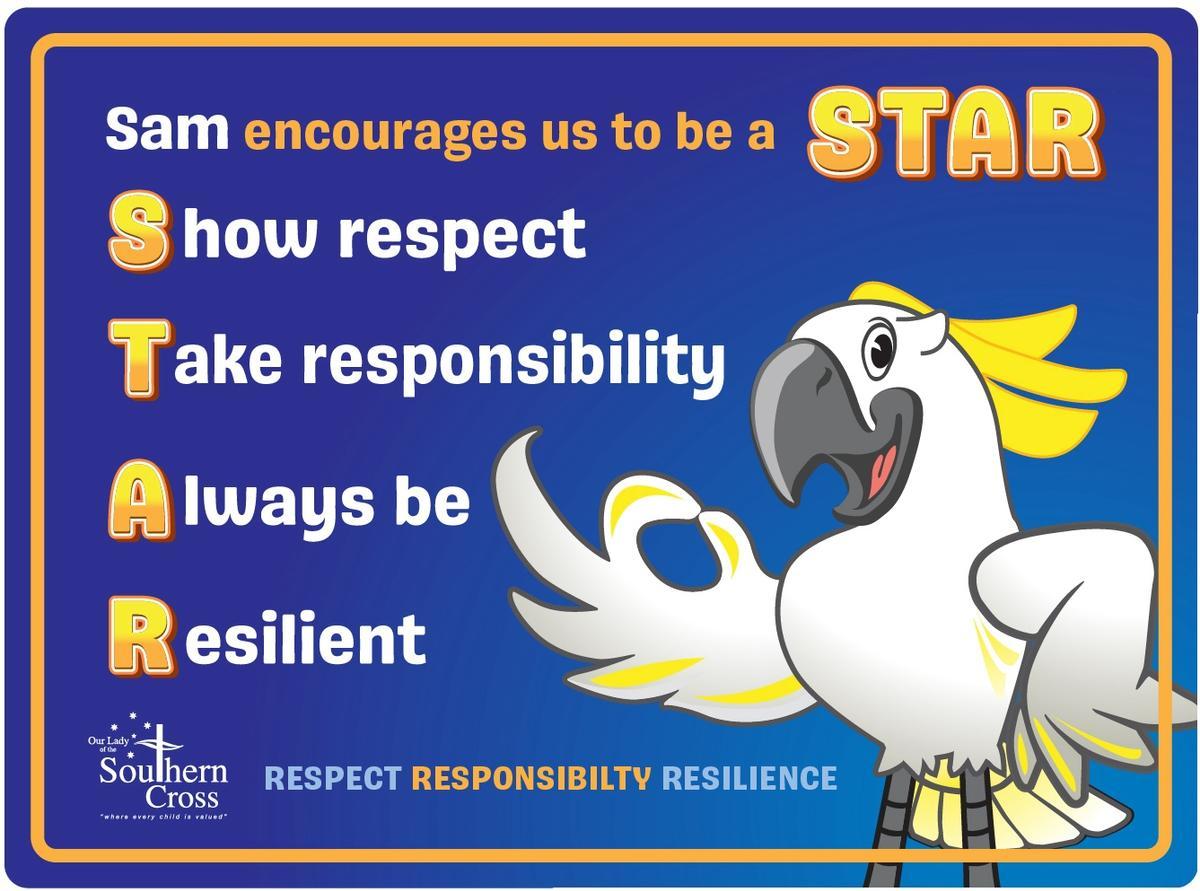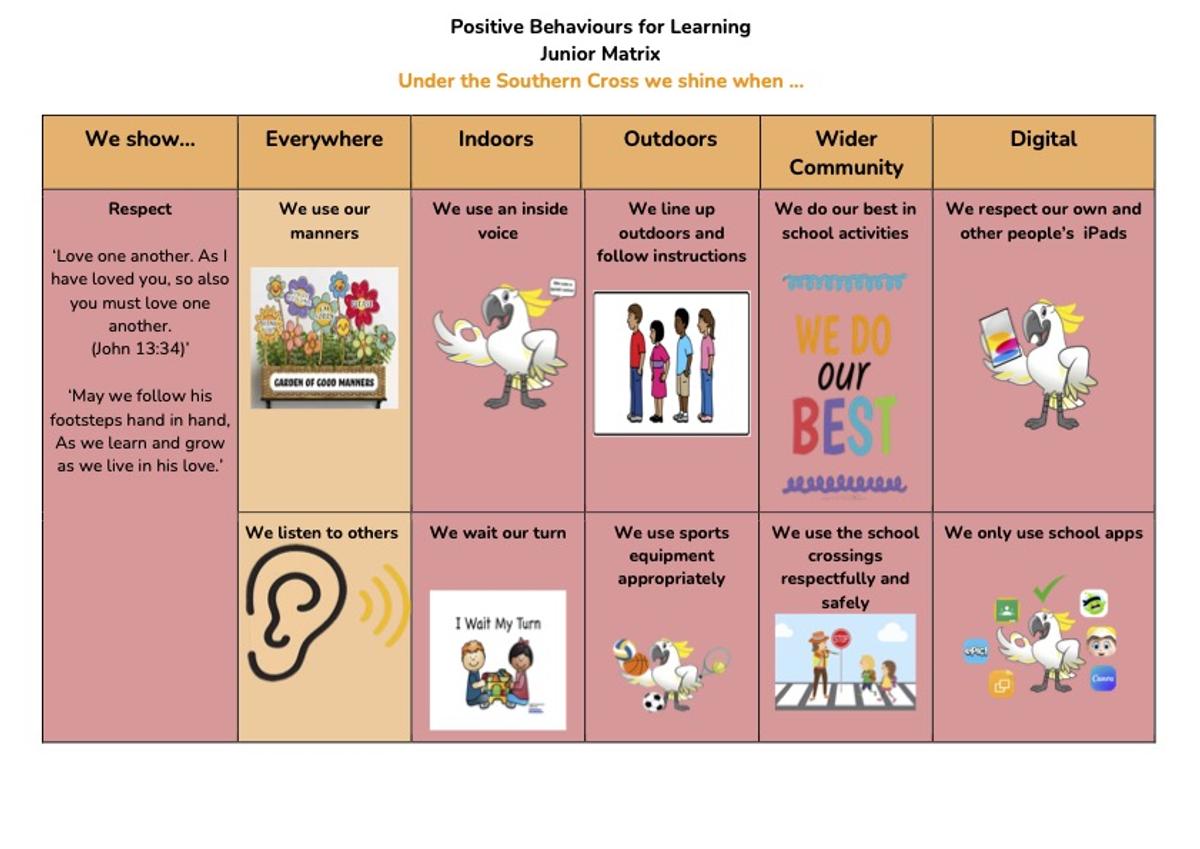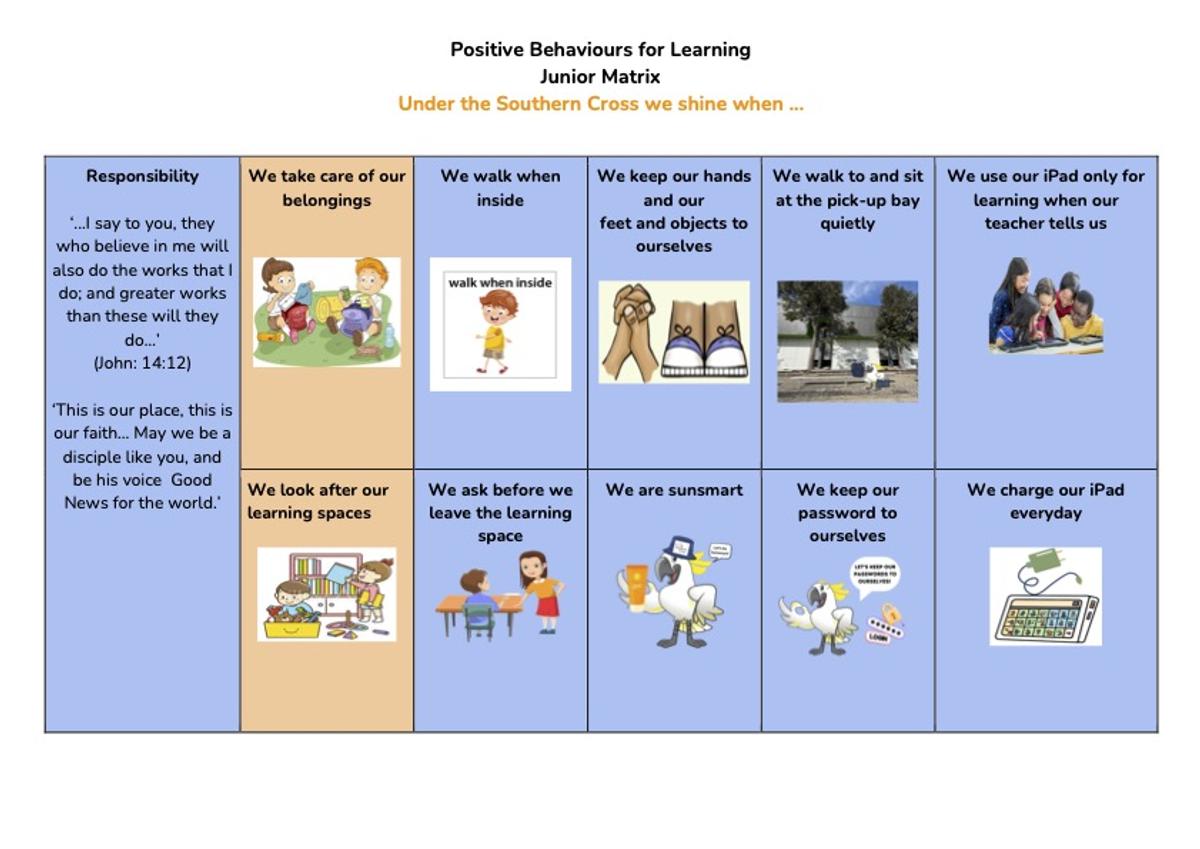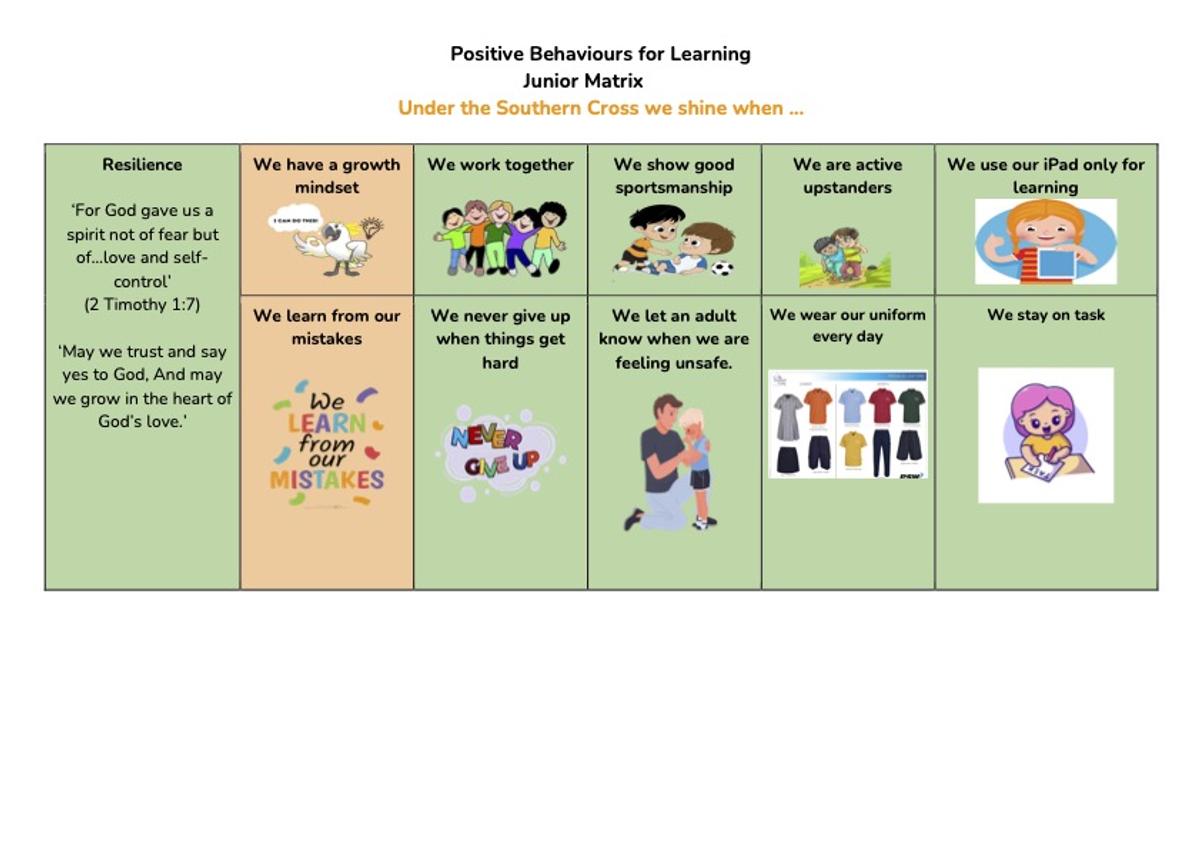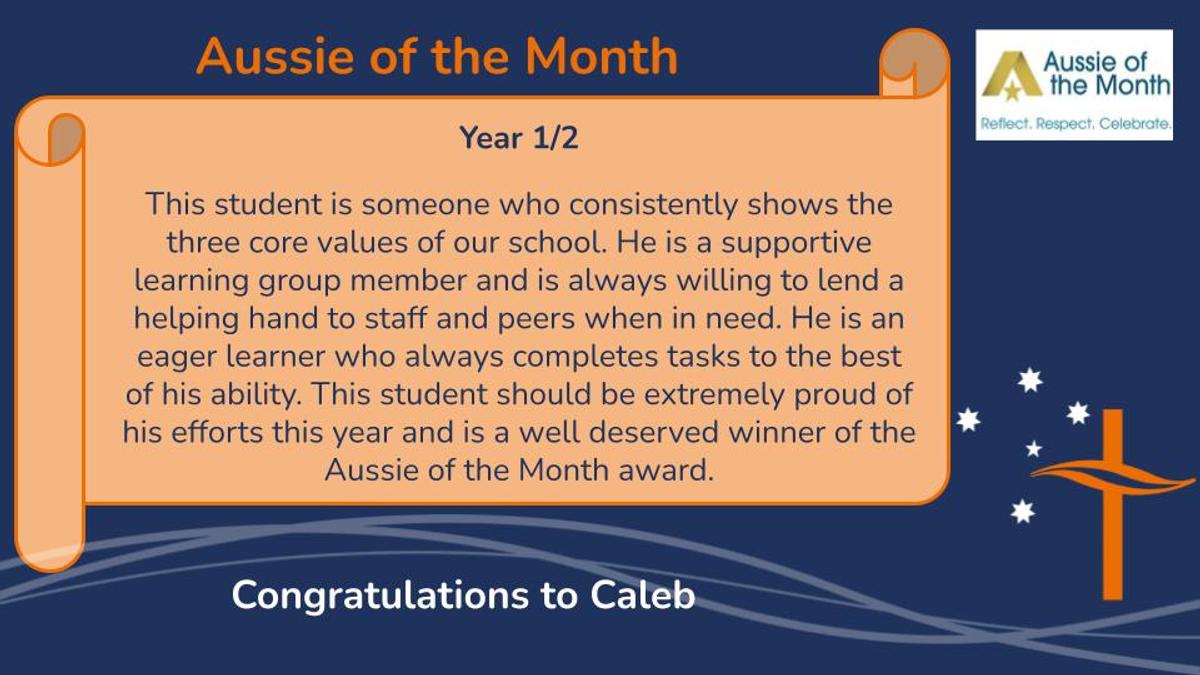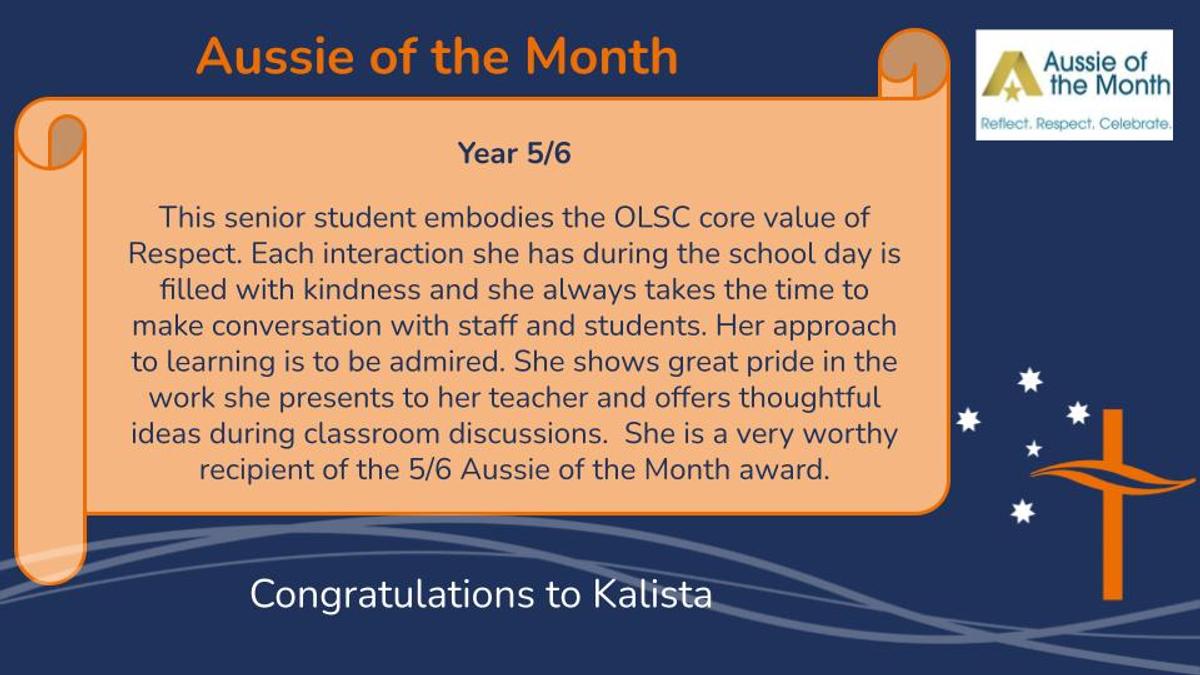Wellbeing

Positive Behaviours for Learning
As part of our ongoing development as a PBL school we continue to explicitly teach & model expectations from our matrix.
The foci for the next couple of weeks are:
Respect:
We actively participate in all school activities
We respect other people’s belongings
We listen to all opinions
Responsibility:
We keep passwords and personal information private
We take ownership of our choices
We get permission before leaving the learning space
Resilience:
We include others
We work cooperatively
We have high expectations of ourselves and others
We never give up when things get hard
We seek solutions to solve problems
We let an adult know if we are feeling unsafe
These expectations will be explicitly taught during Wellbeing Hour & revisited throughout the week. It would be great if you could also reinforce these expectations at home and ask your child/children how they are following these at school.
As mentioned at the beginning of Term 4 the Junior Learning Groups are trialing a simplified, visual version of the PBL Matrix. Feel free to talk about these with your children, feedback is welcome, just email Sandy with your thoughts.
Transition: Preparing Young People for Change
Children and young people react differently to change – some find it exciting, some find it stressful, some hardly notice it. We are coming to the time of year when all students will be meeting their teacher for 2025 or moving into secondary education.
The transition to a new learning environment usually brings changes to a child or young person’s relationships, physical and social environments and daily routines. Transitions also bring challenges and opportunities for social and emotional learning.
Young people who experience a positive transition are more likely to:
- feel comfortable, relaxed and valued
- feel excited and motivated to learn
- have good relationships with others
- develop a sense of belonging
The primary to secondary transition involves several changes.
The move into secondary school is one of the most significant transitions in a child’s education. It involves various changes, including:
- changes in the physical environment
- new rules and procedures
- changes in relationships with peers, teachers and family
- more structured learning, with a variety of teachers and different learning environments to get used to.
Children often have strong feelings about moving into secondary school. They may feel excitement about the prospect of going to a new school, as well as nervousness about what lies ahead. Many children may also feel sad or angry about leaving their current school and the positive relationships they’ve established with educators and friends. Common concerns include:
- losing old friends and making new friends
- being bullied
- getting lost and getting to class on time
- remembering what books and other equipment is needed for each class
- following a timetable
- dealing with different educators
- homework.
Some tips to help transition
- listen and talk to your child
- open communication with your child and the school
- provide your child with opportunities to express their feelings about school, sport, drama, friendships or any other topic, and take a genuine interest in what they say.
- help them to identify their concerns or worries, and acknowledge how they are feeling. For example, using language such as, “it sounds like you are worried about who you will play with at school tomorrow.” For some children and young people, this works better when it’s combined with another activity as they feel less pressure (for example, driving in the car, washing the dishes and so on).
- provide reassurance when they’re feeling worried or unsure. For example, families could say, “It’s a big playground but there’s an area for just the little kids to play.”
- demonstrate and model ways they cope with situations. For example, saying something like,“I’m going to take five deep breaths to help myself relax.”
- encourage help-seeking by teaching your child when to ask for help
- encourage your child by talking positively about their attempts to cope
- assist your child with developing good work and study habits by providing a place where they can complete their home work e.g. a desk or study area
- help establish and maintain a routine
- gradually increase the level of responsibility at home, communicating your expectations can help children develop self-reliance and coping skills
- help your child become familiar with transport and pick up arrangements
Read the leaflet from Be You for further ideas.
Aussie of the Month
The Aussie of the Month award recognises students
for their contribution to our school community.
Aussie of the Month Award winners are students who:
- Are role models for others
- Show consideration and respect for others
- Are inclusive and live our school motto: where every child is valued
Congratulations to this month's winners:
Student Leaders News
Feel free to email me at: shenderson@olscwyn.catholic.edu.au or call the school office if you have any concerns or need help at any time.
Cheers
Sandy

